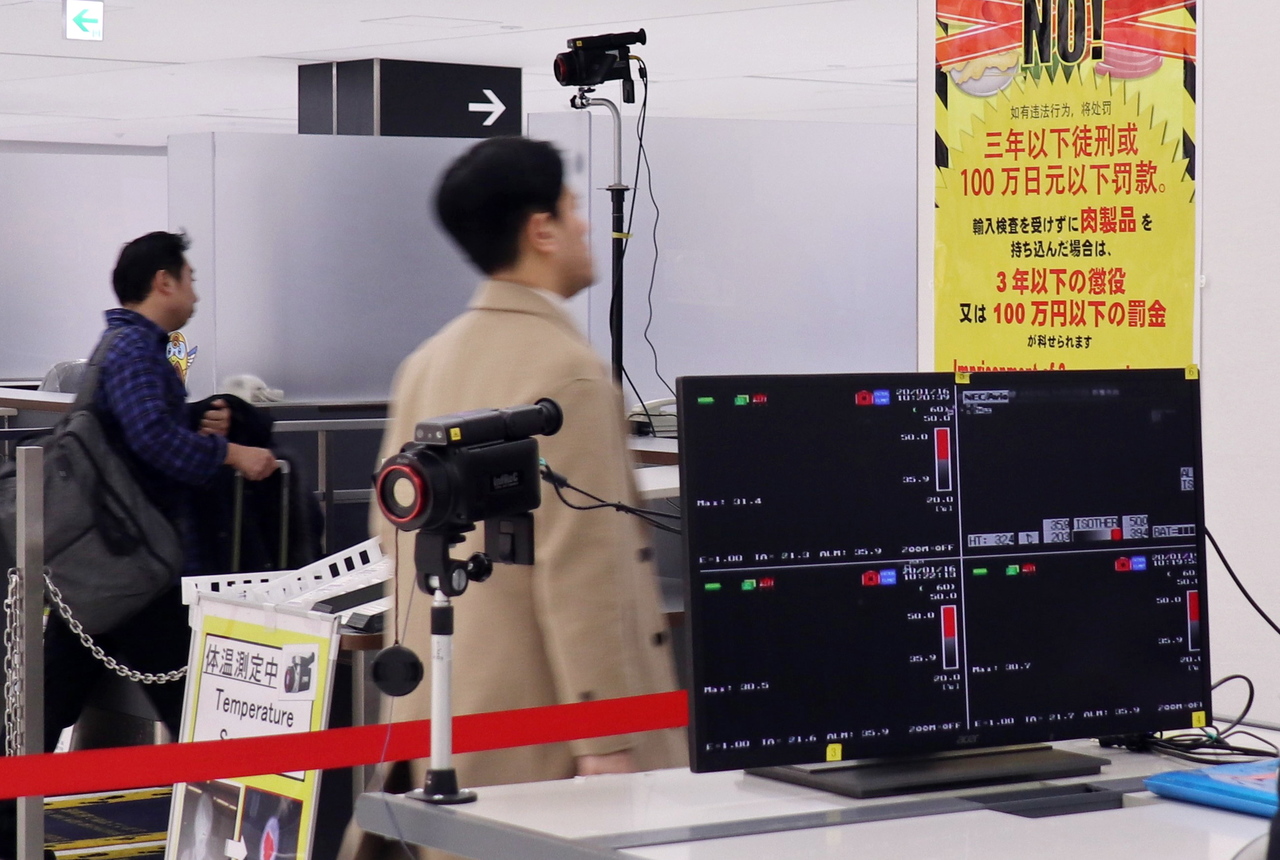Wuhan virus: Service sectors in Asia most vulnerable should outbreak escalate, says Fitch Ratings
Sign up now: Get ST's newsletters delivered to your inbox

In a photo from Jan 16, 2020, passengers walk past a quarantine control station at Narita airport in Narita, Japan.
PHOTO: EPA-EFE
SINGAPORE - Service sector activity in Asia, especially tourism-related fields, would be the most vulnerable should the Wuhan virus outbreak escalate sharply.
This could leave economies such as Singapore, Thailand and Hong Kong exposed, Fitch Ratings said in a report on Friday (Jan 24).
But the downside risks to these Asian countries would be mitigated by large financial buffers and easing of other macroeconomic risks, Fitch noted.
The Wuhan coronavirus, now known as 2019-nCoV, can be transmitted from person to person. It has killed at least 25 people and more than 800 cases have been confirmed.
Singapore confirmed its first case, a 66-year-old Chinese male from Wuhan, on Thursday.
Fitch said the global airlines, gaming, lodging and leisure sectors are vulnerable to pandemics that influence consumer behaviour.
"Large-scale, unpredictable events can cause immediate and severe disruptions in global travel demand that affect revenue but are typically transitory," it noted, adding that the financial implications ultimately hinge on the severity and duration of the situation.
The World Health Organisation announced on Thursday that while the Wuhan virus is an emergency in China - at least 10 cities in Hubei province have suspended some public transportation, with provincial capital Wuhan, the epicentre of the outbreak, on lockdown from Thursday - it is not yet a global health emergency.
Fitch said that if the virus outbreak spreads and is prolonged, consumer sentiment will be dampened and credit ratings could be significantly affected.
A DBS Group Research report released on Friday highlighted that the severe acute respiratory syndrome (Sars) outbreak in 2003, which killed more than 770 people, caused a sharp decline in travel, tourism and commerce in China, Hong Kong, Singapore and Taiwan.
The loss of gross domestic product in 2003 as a result of Sars was about 0.5 per cent for Singapore, and around 2.5 per cent for Hong Kong.
But DBS noted that "economies with advanced healthcare infrastructure and a well-rehearsed policy response system can absorb the shock, contain the damage, and bounce back quickly".
It added that while the virus developments will have an impact on tourism and sales data for January in the region, it is too early to start guessing major downsides to economic and financial indicators.

